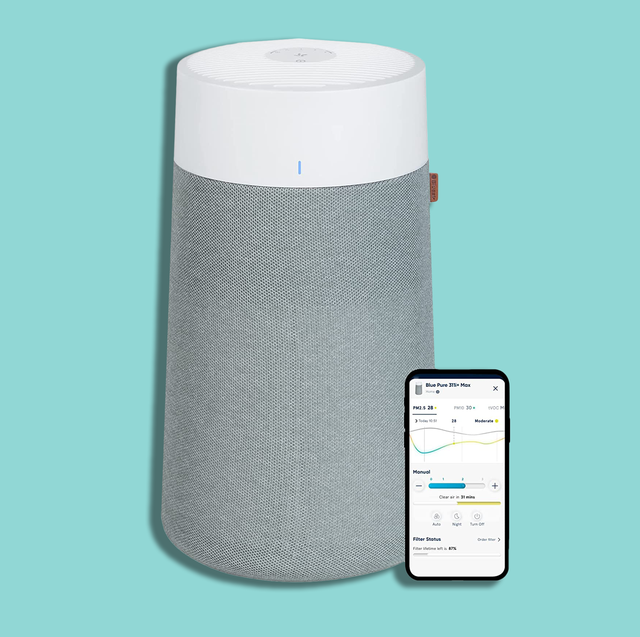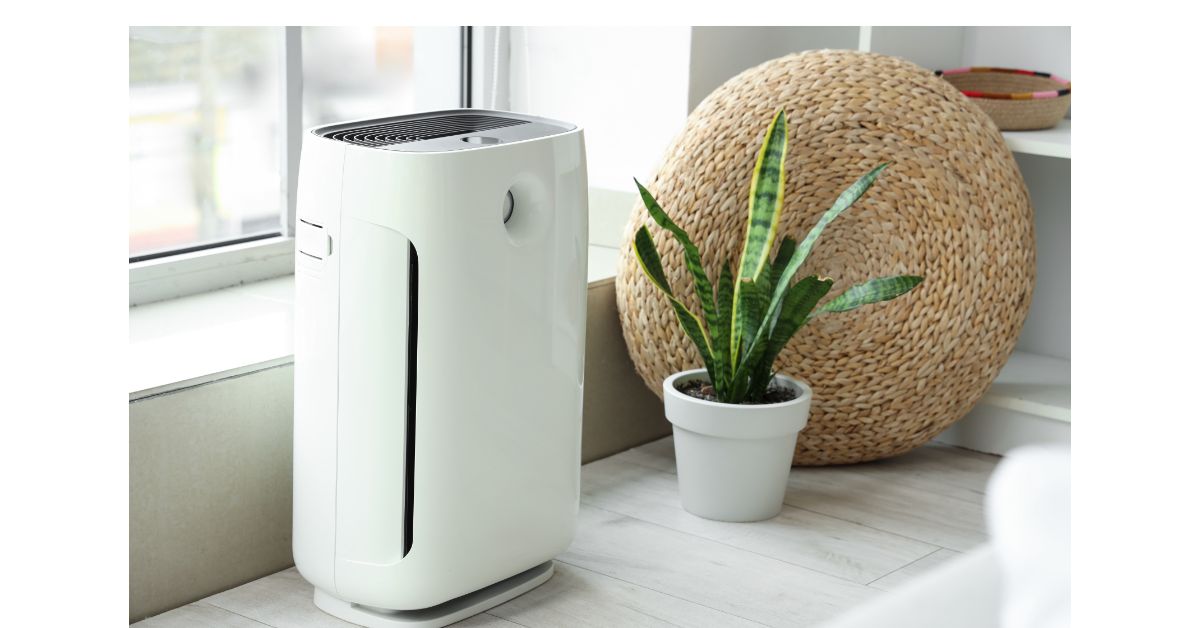Are you tired of sneezing, itchy eyes, and that constant tickle in your throat? Allergies can turn the sanctuary of your home into a battleground.
But what if there was a simple solution to reclaim the air you breathe? Imagine a world where you wake up refreshed, and every breath feels clean and pure. The right air purifier can make this dream your reality. With countless options on the market, how do you choose the best one for your allergy needs?
Don’t worry; we’ve done the legwork for you. Dive into our comprehensive guide to discover the best air purifier for allergies, and take the first step towards a healthier, happier home. Your path to breathing easier starts here.
Importance Of Air Purifiers
In today’s world, air purifiers have become essential household appliances, especially for those who suffer from allergies. They play a crucial role in maintaining a healthy indoor environment. The importance of air purifiers extends beyond mere comfort; they significantly enhance the quality of life by reducing allergens that can trigger unpleasant symptoms.
Impact On Allergies
Air purifiers are designed to trap airborne particles like pollen, dust, and pet dander, which are common triggers for allergies. By reducing these particles, air purifiers help minimize allergic reactions, allowing you to breathe easier. Imagine walking into a room and feeling the difference in air quality—it’s like entering a whole new atmosphere.
Think about those mornings when you wake up with a stuffy nose or itchy eyes. An air purifier can dramatically reduce these symptoms, providing relief and helping you start your day with energy rather than discomfort. It’s a small investment that can make a big difference in your daily life.
Health Benefits
Beyond allergy relief, air purifiers contribute to overall health improvements. They filter out pollutants and bacteria, reducing the risk of respiratory issues. This is especially beneficial for children and elderly individuals who are more vulnerable to air quality problems.
Consider the long-term health benefits of breathing cleaner air. By consistently using an air purifier, you might experience fewer colds, better sleep, and improved lung function. It’s a proactive step towards safeguarding your health and well-being.
Have you ever thought about how much time you spend indoors? With air purifiers, you’re ensuring that the air you breathe inside your home is as clean as possible. This simple device can transform your living space into a healthier haven.
- Choose an air purifier with a HEPA filter for maximum efficacy.
- Consider the size of your room when selecting a purifier.
- Regular maintenance is key to keeping your purifier working effectively.
Air purifiers offer practical benefits and solutions to common health issues. Have you tried one yet? The impact on your quality of life might be more significant than you expect.

Credit: www.goodhousekeeping.com
Types Of Air Purifiers
Choosing the right air purifier is crucial for allergy relief. Different types offer various benefits. Understanding each type helps you make an informed decision.
Hepa Filters
HEPA filters trap tiny particles in the air. They capture pollen, dust, and pet dander. These filters remove 99.97% of airborne allergens. HEPA filters are highly effective for allergy sufferers. They are ideal for homes with pets or near busy roads.
Activated Carbon Filters
Activated carbon filters absorb odors and gases. They are perfect for eliminating smoke and chemical smells. These filters have porous surfaces that trap volatile compounds. They improve air quality by removing pollutants. They complement HEPA filters in purifying the air.
Uv Light Purifiers
UV light purifiers kill germs and bacteria. They use ultraviolet light to sanitize the air. These purifiers don’t remove particles like HEPA filters do. They focus on eliminating microorganisms. UV light purifiers are excellent for reducing airborne viruses.
Ionic Purifiers
Ionic purifiers release charged ions into the air. These ions attach to particles and make them fall. They help remove allergens and dust. Ionic purifiers are quiet and energy-efficient. They work well in large spaces and open areas.
Key Features To Consider
Choosing the right air purifier for allergies can greatly improve your health. Understanding key features helps make an informed decision. These features ensure the air purifier meets your needs. Here, we discuss important aspects to consider.
Filter Efficiency
Filter efficiency is crucial in an air purifier. HEPA filters are the best choice. They capture 99.97% of particles. This includes dust, pollen, and pet dander. Look for purifiers with True HEPA filters. Avoid HEPA-like or HEPA-type filters. They may not be as effective.
Coverage Area
The coverage area tells how much space the purifier can clean. Measure your room size before buying. Choose a purifier that matches or exceeds this size. A small purifier in a large room won’t work well. Consider your home’s layout too. Open spaces might need higher capacity.
Noise Levels
Noise can be a concern with air purifiers. Check the decibel rating. Lower decibels mean quieter operation. A quiet purifier is ideal for bedrooms. It helps ensure a peaceful sleep. Some purifiers have night modes. These reduce noise while maintaining efficiency.
Energy Consumption
Energy consumption affects your electricity bill. Look for energy-efficient models. Check for Energy Star certification. These use less power without reducing performance. Consider models with adjustable fan speeds. Lower speeds use less energy. It’s a good feature for energy savings.
Top Air Purifiers For Allergies
Allergies can disrupt daily life. Choosing the right air purifier helps. It reduces allergens and improves air quality. Not all purifiers are equal. Some excel in specific areas. Let’s explore the best air purifiers for allergies.
Best Overall
The Dyson Pure Cool TP04 stands out. It combines air purification with cooling. This purifier captures 99.97% of allergens. It uses a HEPA filter. It also offers smart features. You can control it via an app. It’s efficient for most rooms.
Best For Large Rooms
Blueair Blue Pure 211+ is ideal for large spaces. It covers up to 540 square feet. Its three-stage filtration is powerful. It removes dust, pollen, and smoke. The design is sleek and simple. It operates quietly, even at high speeds.
Best Budget Option
Levoit Core 300 offers great value. It’s affordable and effective. This compact purifier cleans small spaces well. It uses a true HEPA filter. It’s easy to use and energy-efficient. Perfect for bedrooms and offices.
Best For Pet Allergies
GermGuardian AC4825 is a top pick for pet owners. Its HEPA filter captures pet dander. It also uses UV-C light to kill germs. This purifier helps reduce odors. It’s compact and easy to maintain. Suitable for medium-sized rooms.
Maintenance Tips
Keeping your air purifier in top shape is crucial for ensuring it effectively reduces allergens in your home. Proper maintenance not only extends the lifespan of your device but also ensures optimal performance. Without regular upkeep, even the best air purifier might fail to deliver its full potential. Let’s dive into some essential maintenance tips that can help you make the most out of your air purifier.
Regular Filter Replacement
Filters are the heart of your air purifier. Over time, they accumulate dust, pollen, and other particles, which can reduce their effectiveness. Check your air purifier’s manual for the recommended replacement schedule. Typically, HEPA filters need changing every six to twelve months.
Consider setting a reminder on your phone or calendar. Regular replacements ensure your air purifier works efficiently, keeping your air clean and reducing allergy symptoms. It’s a small step that makes a big difference.
Cleaning And Care
Beyond replacing filters, regular cleaning is vital. Dust and dirt can accumulate on the exterior and vents, affecting airflow. Use a damp cloth to wipe down the surfaces weekly. Pay attention to the intake and exhaust vents.
Some purifiers come with washable pre-filters. Rinse them under running water and let them dry completely before re-installing. A clean machine not only performs better but also prolongs its lifespan. Neglecting this can lead to ineffective purification.
Have you ever wondered why sometimes your purifier seems less efficient? Maintenance could be the key. Regular upkeep ensures your device doesn’t just sit there, but actively makes your home healthier. How do you maintain your air purifier? Share your tips in the comments below!

Credit: www.rtings.com
User Reviews And Experiences
Choosing the best air purifier for allergies often involves hearing from real users. Reviews provide insights into how well a purifier performs in everyday situations. They help potential buyers make informed decisions. Let’s explore user experiences to understand what makes an air purifier effective.
Expert Opinions Vs. Real-life Experiences
Expert reviews focus on technical specs and lab results. They often highlight features and performance metrics. Real users share how the purifier works in their homes. They talk about ease of use and maintenance. This balance of perspectives can guide buyers in choosing the right product.
Common Complaints And Praise
Many users appreciate purifiers that are quiet. They enjoy breathing cleaner air without noise disruption. Some users mention the filters are costly to replace. Others praise models with long-lasting filters. Reviews often highlight how easy it is to operate the machine.
Impact On Allergy Symptoms
Users often report reduced allergy symptoms. Sneezing and itchy eyes become less frequent. Many share that they sleep better with cleaner air. This feedback is crucial for allergy sufferers seeking relief. It’s important to note the purifier’s effectiveness over time.
Ease Of Use And Maintenance
Simple controls and easy filter replacement are common praises. Users enjoy purifiers with straightforward settings. Many mention how easy it is to clean the unit. Maintenance can affect the purifier’s performance. Reviews often highlight models that require minimal upkeep.
Overall Satisfaction And Recommendations
Users often recommend purifiers that meet their needs. Satisfaction comes from a balance of efficiency and cost. Many buyers suggest models that offer value for money. Positive reviews often lead to strong recommendations. They help others choose effective solutions for allergies.
Buying Guide
Discover top air purifiers designed to ease allergy symptoms. Choose models with HEPA filters for the best results. Improve indoor air quality and breathe easier with the right purifier.
Buying Guide Choosing the best air purifier for allergies can be a daunting task given the myriad of options available. It’s crucial to focus on key factors that will directly impact your experience and satisfaction. From budget to brand reputation, and warranty options, here’s a guide to help you make an informed decision.
Budget Considerations
Your budget is a fundamental factor when purchasing an air purifier. You might find models ranging from affordable to high-end. It’s essential to balance cost with features and performance. Consider what features are non-negotiable for your specific needs. Is a HEPA filter a must-have? Do you need a smart air purifier that integrates with your home system? Prioritize these features within your budget range. Think about long-term costs such as filter replacements and energy consumption. An initial low-cost purchase might lead to higher expenses down the road. How often do you want to replace filters, and what is the cost associated with those replacements?
Brand Reputation
A brand’s reputation can tell you a lot about the quality and reliability of its products. Established brands often offer robust customer support and comprehensive warranties. Research customer reviews and ratings for insights into real-world performance. Have you noticed any recurring issues in the feedback that could affect your choice? Pay attention to brands that have been recognized for innovation and reliability in air purification technology. This might point to a brand that invests in quality and customer satisfaction.
Warranty And Support
The warranty and support offered by a manufacturer can be a safety net for your purchase. Longer warranties often indicate a brand’s confidence in its product. Review the warranty’s fine print—does it cover both parts and labor? Are there any exclusions or conditions that could affect your coverage? Consider the availability and responsiveness of customer support. In the event of an issue, how quickly can you expect a resolution? A strong support team can make all the difference in your overall experience. By examining these factors, you can ensure that your investment in an air purifier is both effective and satisfying. What will be your top priority when choosing the best air purifier for your allergies?
Future Of Air Purification Technology
The future of air purification technology is promising. Innovations are transforming how we breathe indoors. This is crucial for allergy sufferers. New advancements focus on efficiency and effectiveness. They aim to improve air quality in homes and workplaces. Let’s explore the exciting developments shaping this future.
Smart Air Purifiers With Ai
AI-powered purifiers are becoming popular. They adapt to changing air conditions. These devices learn from usage patterns. They optimize their performance automatically. Users enjoy cleaner air without hassle. AI enhances user experience and air quality.
Iot Integration
Internet of Things (IoT) integration is reshaping air purifiers. Smart sensors detect pollutants instantly. They communicate with other smart home devices. Users control air quality through mobile apps. This connectivity offers convenience and control. It ensures optimal air purification at all times.
Advanced Filtration Systems
Filtration technology is evolving rapidly. High-efficiency particulate air (HEPA) filters are standard. New filters capture smaller particles. They remove allergens more effectively. Multi-stage systems enhance filtration efficiency. They ensure cleaner air for allergy sufferers.
Eco-friendly Designs
Eco-friendly designs are gaining attention. Manufacturers use sustainable materials. Energy-efficient models reduce power consumption. These designs minimize environmental impact. They offer a balance between performance and sustainability. Consumers benefit from cleaner air and a cleaner planet.
Uv-c Light Technology
UV-C light is a powerful tool in air purification. It eliminates bacteria and viruses. This technology is integrated into modern purifiers. It provides an extra layer of protection. Allergy sufferers benefit from healthier indoor environments. UV-C ensures safe and clean air.
Portable Air Purifiers
Portable purifiers are ideal for small spaces. They offer flexibility and convenience. Users can move them from room to room. These devices ensure consistent air quality. They are perfect for travel and office use. Portable designs cater to dynamic lifestyles.
Frequently Asked Questions
What Features To Look For In Air Purifiers?
When choosing an air purifier for allergies, prioritize HEPA filters for effective particle removal. Consider CADR ratings for efficiency in specific room sizes. Look for additional features like activated carbon filters for odor control. Smart sensors and quiet operation enhance user experience.
Lastly, ensure easy maintenance and filter replacement for long-term use.
How Do Air Purifiers Help With Allergies?
Air purifiers trap allergens like pollen, dust, and pet dander, reducing their presence indoors. HEPA filters capture particles as small as 0. 3 microns. Activated carbon filters help with odors and VOCs. Regular use can improve air quality and minimize allergy symptoms, providing relief for sensitive individuals.
Are Hepa Filters Necessary For Allergy Relief?
Yes, HEPA filters are crucial for allergy relief as they capture over 99% of airborne particles. They effectively remove allergens like pollen, dust mites, and pet dander. HEPA filters are recommended by allergists for their efficiency in improving indoor air quality and reducing allergy symptoms.
Can Air Purifiers Remove Pet Dander?
Air purifiers equipped with HEPA filters effectively remove pet dander from indoor air. These filters capture tiny particles, including pet hair and skin flakes. Regular use can significantly reduce pet-related allergens, providing relief for individuals with allergies. Opt for purifiers with strong airflow for better results.
Conclusion
Choosing the best air purifier can help reduce allergy symptoms. Clean air means fewer allergens floating around. Consider the purifier’s size, filter type, and noise level. A good purifier fits your room and lifestyle. It should capture dust, pollen, and pet dander efficiently.
Remember to check the filter replacement cost. Regular maintenance ensures optimal performance. Investing in an air purifier can improve indoor air quality. Breathe easier and enjoy a healthier home environment. Make an informed choice for your needs and feel the difference.
Your health and comfort matter.

